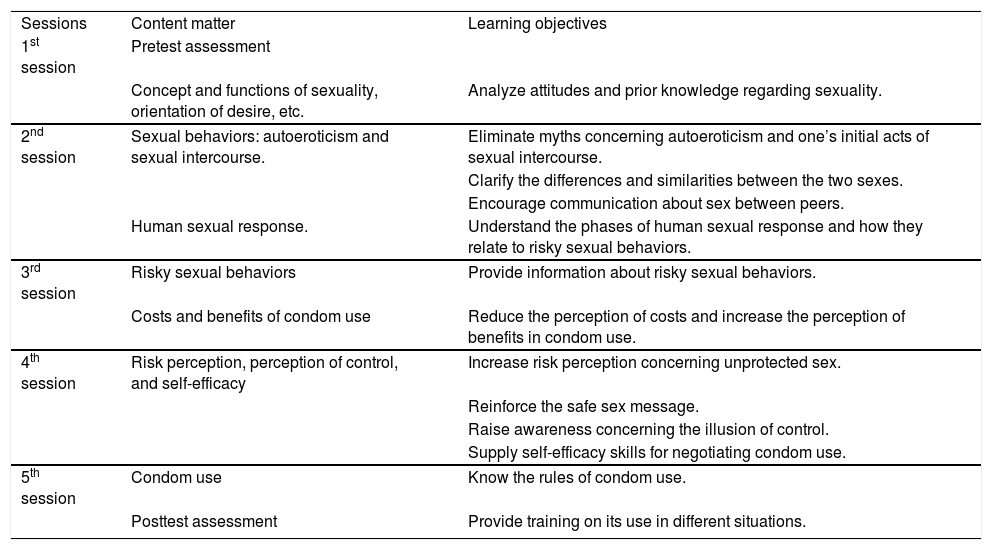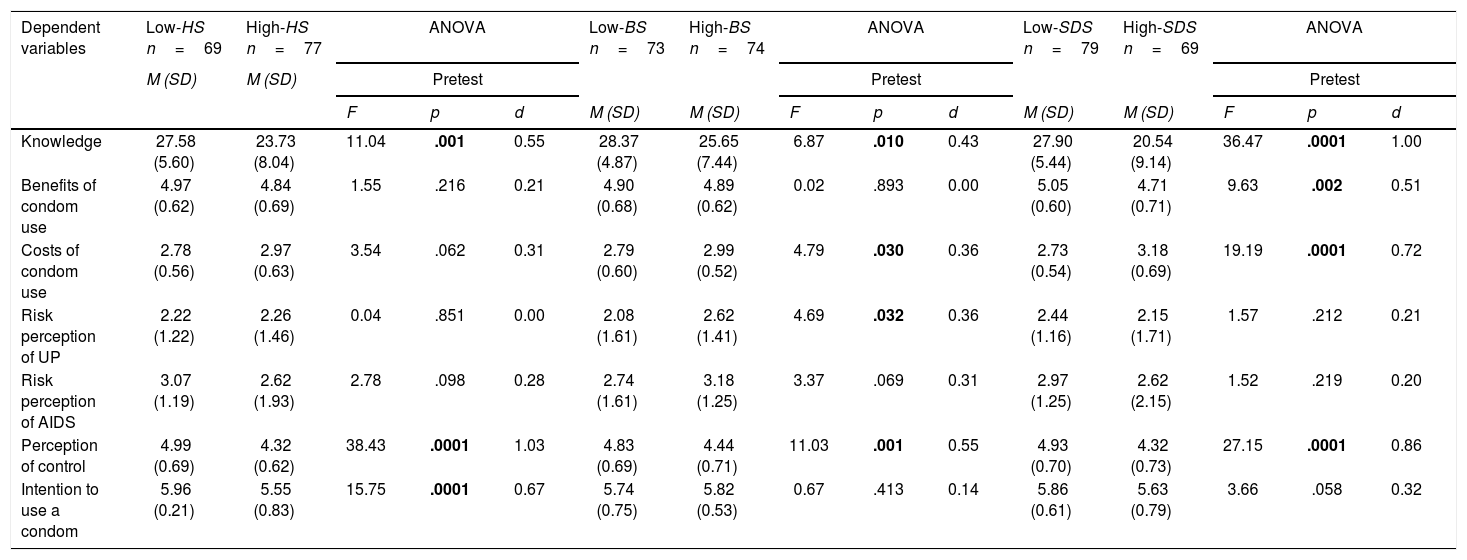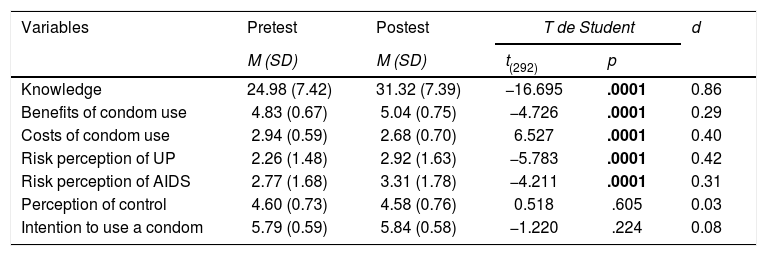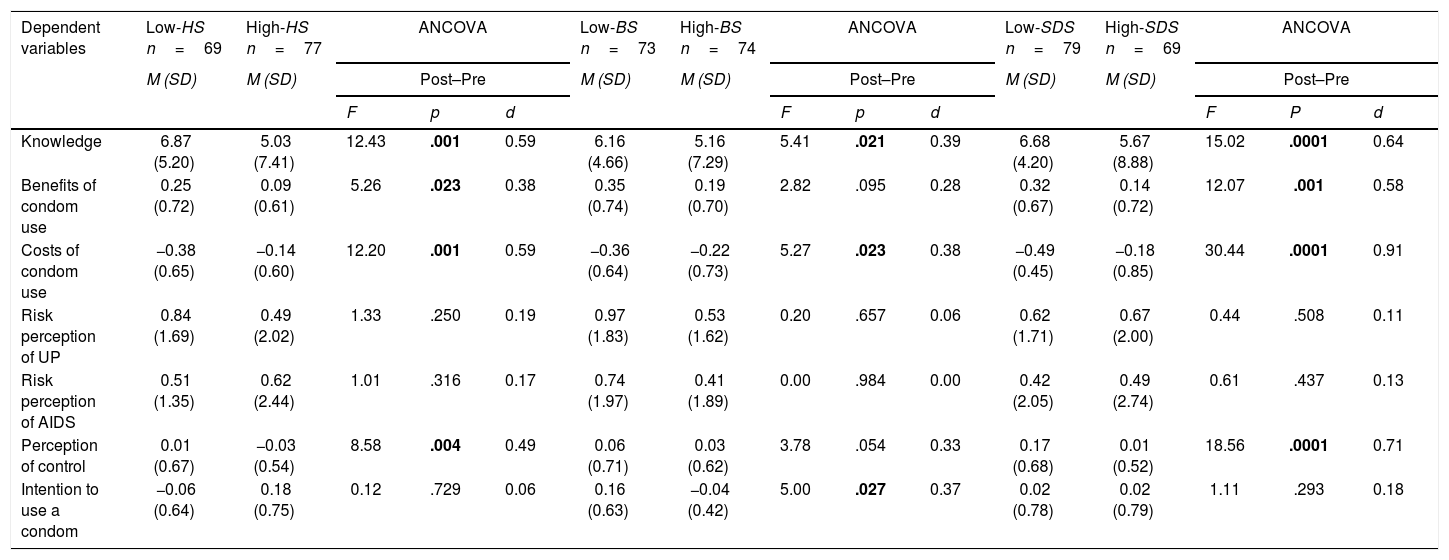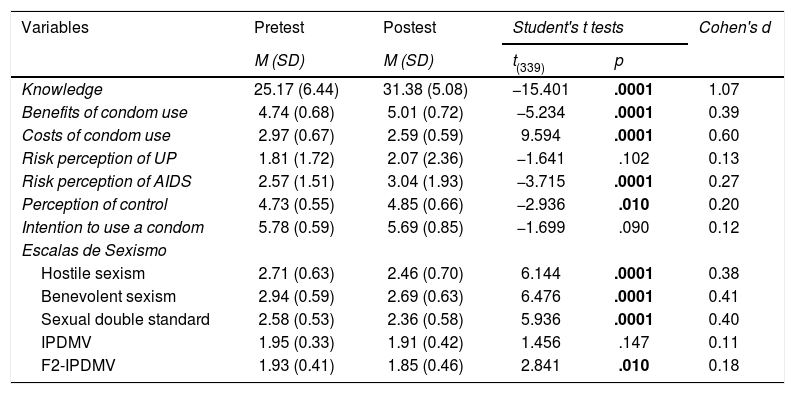In recent years, ample evidence has accumulated indicating the advantage of sexual health programs that incorporate a gender perspective. However, to our knowledge, there are no empirical studies on the influence of sexist attitudes on the effectiveness of sex education programs. This study aims to demonstrate that sexism has a negative impact on the results obtained by sex education programs in the prevention of sexual risks through two studies. Study 1 tests whether a sex education program differs in effectiveness based on the level of Ambivalent Sexism (ASI) and Sexual Double Standard (DSS). The sample was composed by 293 Basque-speaking adolescents from nine secondary schools in the Basque Country (M=15.56, SD=0.63, range: 15–17). Study 2 analyses whether introducing training aimed at reducing levels of sexism achieves that the sexual education program obtains similar results in young people with high and low sexism—ASI, DSS and the Inventory of Distorted Thoughts on Women and Violence (IDTWV). The sample is made up of 340 Basque-speaking adolescents from eight secondary schools in the Basque Country (M=15.54, SD=0.57, range: 15–17). Results point to the relevance of including gender perspective in sexual education programs aimed toward reducing sexism, especially sexual double standards, in order to increase its effectiveness in the prevention of sexual risks.
En los últimos años se ha ido acumulando una amplia evidencia que indica la superioridad de los programas de salud sexual que incluyen una perspectiva de género. Sin embargo, hasta donde sabemos, no existen estudios empíricos sobre la influencia que tienen las actitudes sexistas en la eficacia de los programas de educación sexual. Este estudio tiene por objeto demostrar que el sexismo impacta de forma negativa en los resultados obtenidos por los programas de educación sexual en la prevención de riesgos sexuales a través de dos estudios. El Estudio 1 comprueba si un programa de educación sexual difiere en su eficacia en función del nivel del Sexismo Ambivalente (ASI) y del Doble Estándar Sexual (DSS). Participan 293 adolescentes euskoparlantes de nueve centros de secundaria del País Vasco (M=15.56, DT=0.63, rango: 15-17). El Estudio 2 analiza si introducir una formación dirigida a disminuir los niveles de sexismo logra que el programa de educación sexual obtenga resultados similares en adolescentes con alto y bajo sexismo -ASI, DSS e Inventario de Pensamientos Distorsionados sobre la Mujer y la Violencia (IPDMV)-. La muestra está formada por 340 adolescentes euskoparlantes de ocho centros de secundaria del País Vasco (M=15.54, DT=0.57, rango: 15-17). Los resultados apuntan la pertinencia de incluir en los programas de educación sexual la perspectiva de género dirigida a disminuir el sexismo, especialmente la doble moral sexual, a fin de incrementar su eficacia en la prevención de riesgos sexuales.





